-
 Sale
SaleCrema Espresso Beans Medium Roast
Regular price From $22.99 USDRegular priceUnit price per$24.99 USDSale price From $22.99 USDSale -
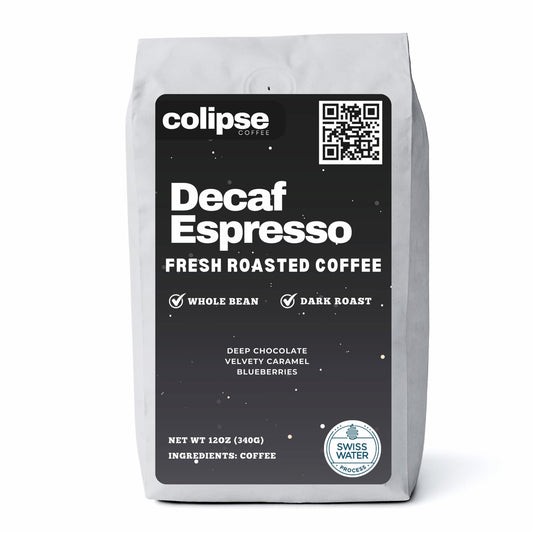 Sale
SaleDecaf Espresso Beans Swiss Water® Process
Regular price From $23.50 USDRegular priceUnit price per$24.95 USDSale price From $23.50 USDSale -
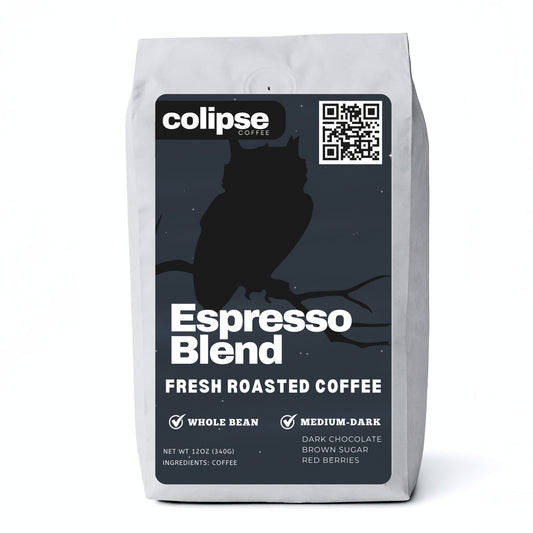 Sale
SaleEspresso Blend Coffee
Regular price From $23.99 USDRegular priceUnit price per$24.99 USDSale price From $23.99 USDSale -
 Sale
SaleEspresso Dark Roast Coffee Beans
Regular price From $21.99 USDRegular priceUnit price per$27.99 USDSale price From $21.99 USDSale -
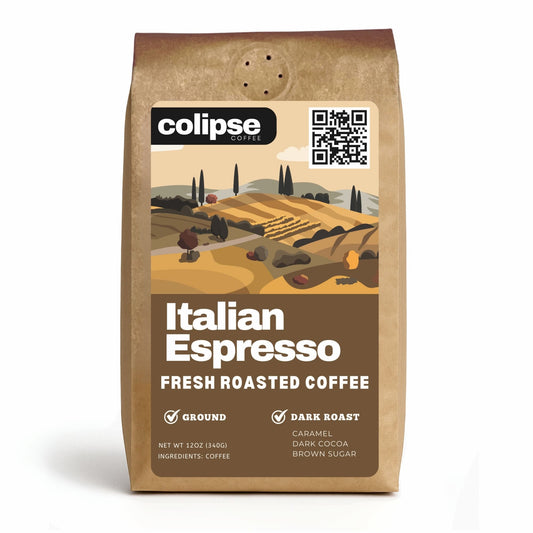 Sale
SaleItalian Espresso Coffee Beans
Regular price From $21.50 USDRegular priceUnit price per$22.99 USDSale price From $21.50 USDSale -
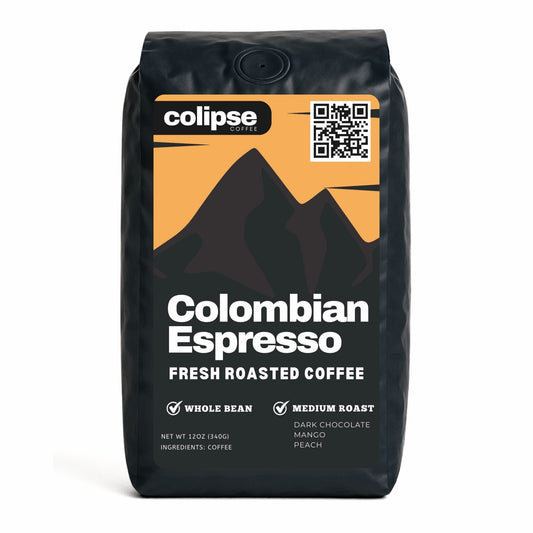 Sale
SaleColombian Espresso Coffee Beans
Regular price From $23.50 USDRegular priceUnit price per$27.99 USDSale price From $23.50 USDSale -
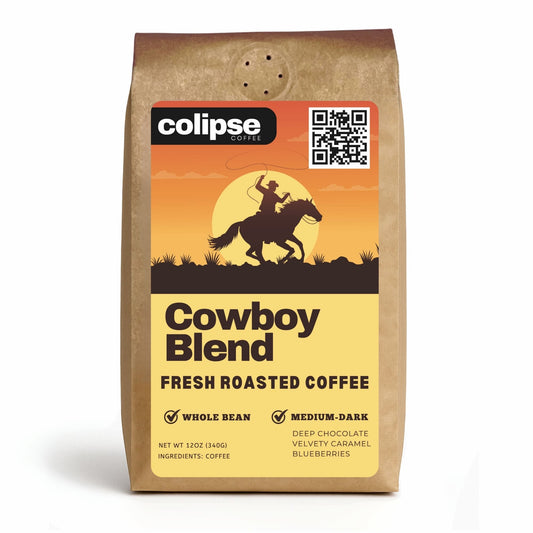 Sale
SaleCowboy Blend Coffee
Regular price From $20.99 USDRegular priceUnit price per$24.50 USDSale price From $20.99 USDSale -
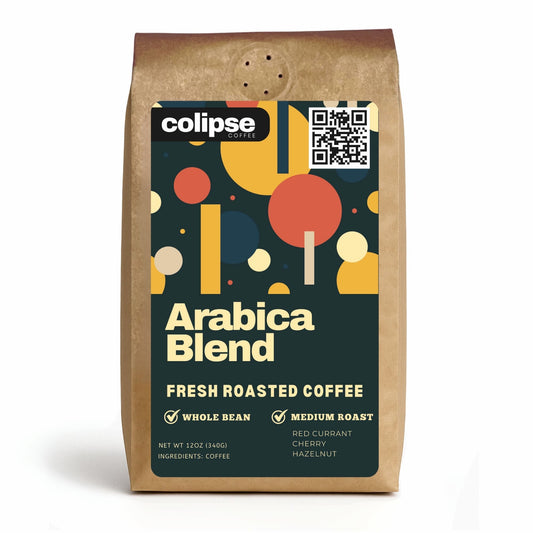 Sale
SaleArabica Blend Coffee
Regular price From $20.99 USDRegular priceUnit price per$24.99 USDSale price From $20.99 USDSale -
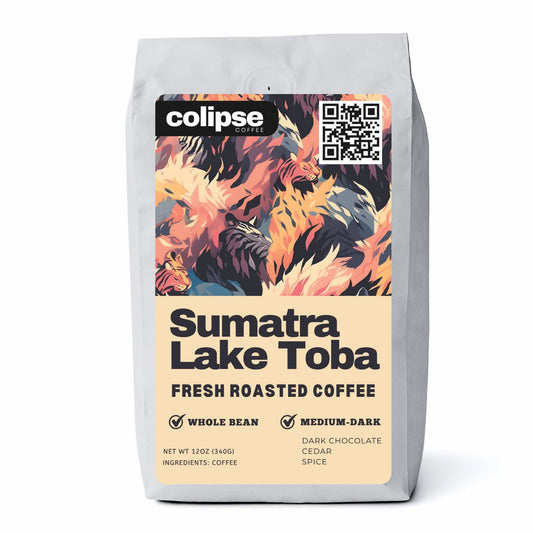 Sale
SaleSumatra Coffee Beans
Regular price From $21.99 USDRegular priceUnit price per$25.99 USDSale price From $21.99 USDSale -
 Sale
SaleColombia Tolima Coffee
Regular price From $23.50 USDRegular priceUnit price per$27.99 USDSale price From $23.50 USDSale -
 Sale
SaleMocha Java Blend Coffee
Regular price From $22.99 USDRegular priceUnit price per$25.99 USDSale price From $22.99 USDSale
What to Know Before Buying Coffee Beans for Espresso Martinis
Key factors below differentiate a good espresso martini from a great one—consider these when choosing your beans.
- Understand the cocktail: Espresso martinis rely on strong coffee flavor, smooth texture, and crema to balance sweetness and alcohol.
- Expect interaction: Vodka, liqueur, and syrup all affect how your coffee tastes in the final drink—flavor needs to cut through.
- Avoid shortcuts: Pre-ground coffee, stale beans, or artificially flavored options can ruin the texture or make the drink taste muddy.
- Watch the roast date: Beans used too early or too late after roasting won’t extract well or taste as vibrant in cocktails.
- Focus on aroma: Your coffee should smell clean, rich, and intense—bad aroma means dull flavor in the martini.
- Prep for freshness: Brew espresso fresh, cool it quickly, and shake hard—your beans only shine if you treat them right.
- Know the garnish: The traditional 3-bean garnish has symbolic meaning—don’t skip it if you want a classic espresso martini presentation.
What Are the Best Coffee Beans for Espresso Martinis?
For espresso martinis, the best coffee beans are freshly roasted, large, specialty-grade Arabica, delivering smooth, rich, bitter-free flavor. Avoid pre-ground, artificially flavored, or low-quality commercial coffee blends, as these can taste flat, bitter, or stale in cocktails.
Can You Use Regular Coffee Beans for Espresso Martinis?
Yes, regular coffee beans can be used for espresso martinis, but espresso-specific beans like Colipse Espresso Dark enhance flavor and crema. Colipse beans, being specialty-grade, freshly roasted Arabica designed for espresso drinks, are ideal for a smooth, bold espresso martini.
Which Coffee Bean Blends Work Best for Espresso-Based Cocktails?
Medium-roast blends with Arabica and Robusta beans are ideal for espresso-based cocktails. For example, Colipse Crema Espresso provides high caffeine, strong crema, and rich flavors like almond, citrus, and dark chocolate, making it perfect for balancing alcohol and sweetness in cocktails.
How to Choose the Right Espresso Martini Beans
To choose the right coffee beans for an espresso martini, follow the seven steps listed below.
- Pick the right roast: Go with medium or dark roasts—light roasts taste too acidic or floral for cocktails.
- Choose your format: Whole beans are ideal; grind fresh to preserve oils and crema. If pre-ground, make sure it’s espresso-fine.
- Decide on flavor clarity: Choose single origin for distinct notes (e.g. fruit, spice); choose blends for balance and consistency.
- Consider the base spirit: If using flavored vodka or liqueur, pick a more neutral chocolatey coffee. For classic builds, go bold.
- Evaluate the origin: Latin American beans give chocolate/nutty tones; African beans bring fruit; Indonesian beans add earthy depth.
- Watch caffeine needs: Go for decaf if you're serving late at night—Colipse Swiss Water® decaf keeps flavor intact.
- Try a sample blend: Start with a medium-dark espresso blend with chocolate or caramel notes—it’s the safest all-around choice.
Which Roast Level Should I Get for Espresso Martinis?
You should get medium to dark roasts for Espresso Martinis. Dark roasts provide bold, rich, low-acidity flavors that complement sweet liqueurs and vodka. Medium roasts offer chocolatey and nutty notes with balanced acidity. Avoid light roasts, as their acidity and floral notes clash with the cocktail. Colipse Espresso Blend is a suitable medium-dark roast with chocolate and caramel notes.
How Does Coffee Origin Affect the Taste of Espresso Martinis?
Coffee origin affects espresso martini flavor by altering acidity, body, and tasting notes. African beans add fruity brightness, Latin American beans offer chocolate and nutty tones, and Indonesian beans create earthy depth. Avoid overly acidic light roasts, which can clash with liqueurs. Choose origins that balance sweetness, bitterness, and body.
Arabica vs. Robusta for Espresso Martinis: What’s Better?
The main difference between Arabica and Robusta for Espresso Martinis is flavor and strength. Arabica offers smooth, sweet notes ideal for balance, while Robusta adds boldness and crema. Blends work well by combining both traits. Colipse offers extra dark Arabica-Robusta blends that are bold, smoky, and ideal for espresso-based cocktails.
Why Are Flavored Coffee Beans Unsuitable for Espresso Martinis?
Flavored coffee beans are unsuitable for espresso martinis because artificial flavors can clash with vodka and coffee liqueur, creating an unbalanced or overly sweet taste. This matters as it alters the cocktail's essential profile. Even if extra flavor is preferred, it risks overpowering the intended espresso richness.
Can Decaf Coffee Beans Be Used in an Espresso Martini?
Yes, decaf coffee beans can be used in an espresso martini without changing its texture or flavor balance. The main difference is the absence of caffeine, which affects the drink’s stimulant effect but not its taste. Decaf espresso martinis are ideal for late-night enjoyment without sleep disruption.
How to Make an Espresso Martini
To make an espresso martini, shake 2 oz vodka, 1 oz freshly brewed espresso, ½ oz coffee liqueur, and ½ oz simple syrup with ice. Strain into a chilled martini glass and garnish with three coffee beans. Adjust syrup for sweetness and use cold brew if espresso is unavailable. Follow the five steps below:
- Brew espresso and let it cool completely (use freezer to speed it up).
- Fill a cocktail shaker with ice. Add espresso, vodka, coffee liqueur, and simple syrup.
- Shake very hard for about 20 seconds to create foam.
- Strain into a chilled martini or coupe glass.
- Garnish with three coffee beans and serve immediately.
Where to Buy Espresso Martini Beans
You can buy coffee beans for espresso martinis online at Colipse. We offer freshly roasted-to-order beans, specialty-grade quality, and multiple blends and origins suitable for all roasts. Our beans are crafted to enhance espresso-based cocktails with balanced flavor and rich crema.
Why Are Three Coffee Beans Used as a Garnish in Espresso Martinis?
Three coffee beans garnish an espresso martini to symbolize health, wealth, and happiness. This tradition originates from the Italian custom of serving Sambuca with three beans, known as "con la mosca" (with the fly). While not rooted in cocktail history, the symbolism has been adopted for aesthetic and cultural appeal.
FAQs for Espresso Martini Beans
Can I use the same coffee beans I use for my regular espresso shots?
Yes, as long as they’re fresh, medium to dark roasted, and suited for espresso, they’ll work well in an espresso martini.
Can I use light roast coffee beans in an espresso martini?
Light roasts tend to taste too acidic or floral, clashing with sweet liqueurs in the cocktail.
Are oily espresso beans bad for espresso martinis?
Yes, overly oily beans can clog grinders and mute flavor clarity in the finished drink.
How soon after roasting should I use beans for espresso martinis?
Ideally within 4 to 14 days post-roast for optimal flavor extraction and aroma.
How should I store coffee beans for making espresso martinis?
Keep them in an airtight container, away from light, heat, and moisture to preserve flavor and crema.











